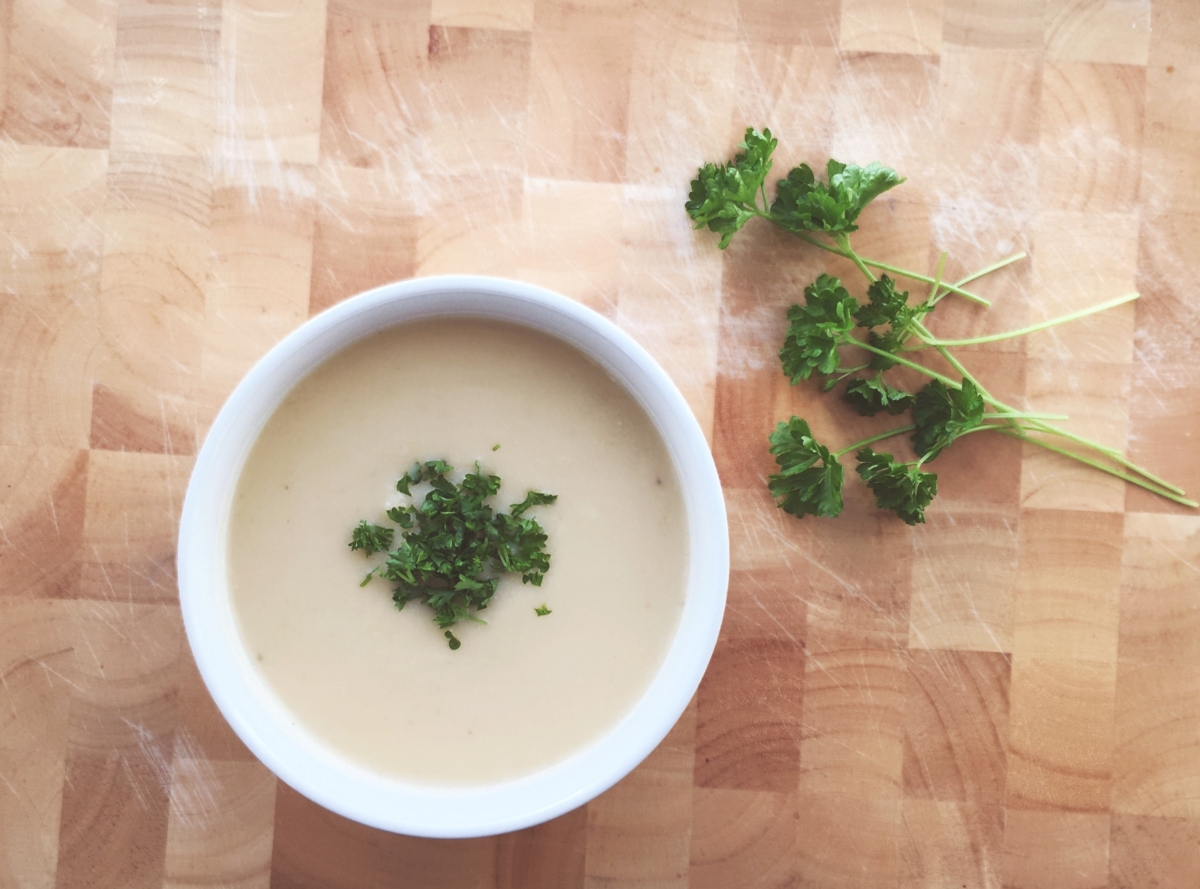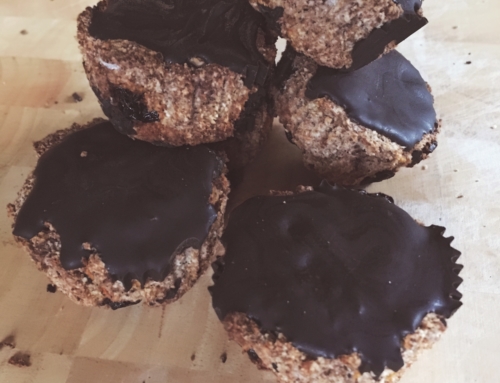Cauliflower Soup
This Cauliflower Soup is an easy and affordable recipe that is nutrient dense perfect for these winter months. It is fully loaded with high amounts of vitamin C, fibre, and the garlic and onions provide powerful anti-bacterial activity. While this Cauliflower Soup Recipe can be enjoyed by everyone, the nutritional yeast provides plenty of B12 for any vegetarians or vegans out there so there is less need for supplementation
Ingredients
- 2 tblspn coconut oil
- 1 x head organic cauliflower, de-leaved
- 700g organic turnips, chopped
- 2 x large organic onion, chopped
- 3 x sticks organic celery chopped
- 4 x cloves of organic garlic
- 2 tbspn organic coconut oil
- 3 inches fresh organic ginger, crushed and sliced
- 6 tblspn nutritional yeast flakes
- Handful of organic continental parsley
- 1 tspn vegetable stock
- 1 x tin organic butter beans
- 1/4 tsp. cracked pepper
- 4 pints of boiled water
Method
- Warm oil in a large pan and add onions, celery and garlic
- Sauté over medium heat and stir until well coated with the oil then add cauliflower and turnip and cook for 10 minutes
- Dissolve vegetable stock in boiled water
- Rinse butter beans under cold water so no bubbles remain
- Add ginger, cracked pepper, yeast flakes, parsley, and beans to pot and stir well
- Add boiled water and bring to boil stirring a couple of times
- Reduce heat and cover, cooking for 30 minutes
- Allow to cool for 10 – 20 mins
- Transfer to blender and puree
- Once pureed return to pan to heat
- Serve in warm bowls topped with chopped parsley and cracked pepper
Equipment
Hand blended or smoothie blender
Food processor beneficial but not necessary
The Nerdy Nutritionist
Turnip (Brassica rapa)
Turnips belong to the Brassicaceae family – a broad family including other root vegetables such as broccoli, kale and the brussel sprout. They typically come into season in winter and are most available from January to February.
Turnips are high in vitamin C with 100g providing 19% of the recommended vitamin C daily intake (1).
They also contain soluble fibre, which is a prebiotic that helps feed our good bacteria in our gut. Most people know about the positive relationship between fibre and a reduced risk of bowel cancer, a healthy immune system, a happy mood and increased brain function. But now there is evidence to suggest that one of the short chain fatty acids (SCFA’s) acetate, a byproduct of fibre metabolism, is effective in reducing the inflammation response of gout contributing to a lower risk of tissue damage (2). Whether you grate some turnip on your salad, use it as the main ingredient in soup or even use it to make a white chocolate mousse – recipe coming soon – there’s no excuse to not eat this affordable and adaptable vegetable
References:
(1) Conde Nast. (2014). Retrieved from http://nutritiondata.self.com/facts/vegetables-and-vegetable-products/2700/2
(2) Vieira, A. T., Galvao, I., Macia, L. M., Sernaglia, E. M., Vinolo, M. A. R., Garcia, C. C., Tavares, L. P., Amaral, F. A., Sousa, L. P., Martins, F. S., Mackay, C. R & Teixeira, M. (2017). Dietary fiber and the short-chain fatty acid acetate promote resolution of neutrophilic inflammation in a model of gout in mice. Journal of Leukocyte Biology; 101(1) 275-284
Disclaimer
The information on this site is provided as an information resource only and is not to be used or relied on for any diagnostic or treatment purposes. This information does not create any client-practitioner relationship, and should not be used as a substitute for professional diagnosis and treatment.
Please consult your health care provider, or Health from Home Naturally, before making any healthcare decisions. Health from Home Naturally expressly disclaims responsibility, and shall have no liability for any damages, loss, injury, or liability whatsoever suffered as a result of your reliance on the information contained in this site.






